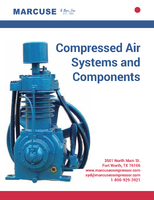Too Much Food Is Perishing
Bosch Takes Part in Save Food Initiative
o One-third of foodstuffs perish
o Insufficient protection against weather and pests
o Innovative solutions save energy
Waiblingen/Düsseldorf - The Bosch Group wants to help ensure that, in the future, less food perishes on its way to the consumer. This is why the Packaging Technology business unit is taking part in the international "Save Food" initiative, which was initiated by the United Nations' Food and Agriculture Organization (FAO), the food and packaging industry and the Düsseldorf Trade Fair Center. At present, over a third of all food is wasted globally as it travels from the field to the plate. In emerging countries like India the amount is over three-quarters. The initiative wants to ensure more diligent handling of available foodstuffs and to look for solutions so that less food is wasted. "Only a joint effort will succeed in combating today's massive waste of food," said Friedbert Klefenz, president of Bosch Packaging Technology.
One reason why food decays prematurely is frequently the lack of appropriate packaging to protect the products from the weather or from pests. This means that transportation and storage is impossible without causing damage to the products. This illustrates the importance of packaging technology in our everyday lives. "Without packaging technology, there would also be much less variety on our dining tables," Klefenz explained.
Because large amounts of harvested food are lost, particularly in poorer countries, resources like arable land, energy and water are not utilized to their maximum potential and are therefore wasted. For example, the production of one kilogram of corn requires 450 liters of water. The figure for one kilogram of rice is 3,000 liters and one kilogram of beef needs no less than 4,500 liters.
Current activities in India
As early as 2007, Bosch took action against the waste of food and resources in emerging countries. In India, truck-mounted machines, customized to meet local needs, were used to convince local farmers and authorities of the benefits of packaged food products. Each year, an additional 100 machines come into operation. Their use could be even more widespread if there was a distribution network to assure the transport of goods over longer distances. A widespread distribution of packaging machines is the goal in order to prevent on-site perishing of goods. Additionally, it is important to build distribution networks.
Conserving resources and the environment
With new developments, Bosch Packaging Technology will play its part in reducing the use of energy as well as material in the packaging of food products. This will not just lead to lower food processing costs but will also conserve resources and the environment. One example is aseptic food packaging. Using this technology means that there is no longer a need to heat goods to high temperatures inside the packaging. In turn, much less packaging material is needed and energy use is reduced by up to 70 percent compared to traditional systems. In addition, this gentle way of processing preserves a significantly higher amount of nutrients. Importantly, food packaged in this way does not require a cold chain, which would normally have to be maintained, at a high energy cost, all the way from the processing plant through transportation to the retail outlet. This type of packaging is therefore especially appropriate in emerging economies where consumers, who do not have access to a supermarket with cooling shelves, can also be supplied.
A further solution developed by Bosch is ultrasonic sealing technology, which uses less energy for the sealing of packages. Unlike heat sealing, the "cold" ultrasonic sealing method does not require pre-heated sealing jaws. Manufacturers are also free to use thinner, and therefore much cheaper, film material. Moreover, ultrasonic sealing produces narrower sealing joints, thus requiring less packaging material.
The Bosch division Packaging Technology, based in Waiblingen (Germany), is one of the leading suppliers in the field of packaging technology. In 16 countries worldwide it develops and produces complete systems in packaging and process technology for the pharmaceutical, confectionery and food industries. Customized system solutions complete the service package. Bosch Packaging Technology's sales and service teams operate worldwide. More information at www.boschpackaging.com.
The Bosch Group is a leading global supplier of technology and services. In the areas of automotive and industrial technology, consumer goods, and building technology, some 285,000 associates generated sales of 47.3 billion euros in fiscal 2010. The Bosch Group comprises Robert Bosch GmbH and its more than 350 subsidiaries and regional companies in over 60 countries. If its sales and service partners are included, then Bosch is repreÂsented in roughly 150 countries. This worldwide development, manufacturing, and sales network is the foundation for further growth. Bosch spent 3.8 billion euros for research and development in 2010, and applied for over 3,800 patents worldwide. With all its products and services, Bosch enhances the quality of life by providing solutions which are both innoÂvative and beneficial.
Bosch is celebrating its 125th anniversary in 2011. The company was set up in Stuttgart in 1886 by Robert Bosch (1861-1942) as a "Workshop for Precision Mechanics and Electrical Engineering." The special ownership structure of Robert Bosch GmbH guarantees the entrepreneurial freedom of the Bosch Group, making it possible for the company to plan over the long term and to undertake significant up-front investments in the safeguarding of its future. Ninety-two percent of the share capital of Robert Bosch GmbH is held by Robert Bosch Stiftung GmbH, a charitable foundation. The majority of voting rights are held by Robert Bosch Industrietreuhand KG, an industrial trust. The entrepreneurial ownership functions are carried out by the trust. The remaining shares are held by the Bosch family and by Robert Bosch GmbH.
Additional information can be accessed at www.bosch.com, www.bosch-press.com, and www.125.bosch.com.




